Essay on The Life of Holy Prophet Hazrat Muhammad (PBUH) | My Hero
Essay on the life of hazrat muhammad (صلی اللہ علیہ وسلم), my hero in history.
In this post, you will find an Essay on the Life of Holy Prophet Hazrat Muhammad (PBUH), My Hero in History. You can write the same essay under the title, Essay on the Holy Prophet (PBUH) or Essay on the Life of Hazrat Muhammad (PBUH). This is a simple and easy essay for the students of Class 10 and Class 12. Students of 2nd Year of F.A, FSC, ICS and Icom can get benefit from this essay. Life of Hazrat Muhammad (PBUH) is a role model for every Muslim. In this essay, we will discuss the whole life of Hazrat Muhammad (صلی اللہ علیہ وسلم) in short words. You can practice this essay as a course of your studies. If you are looking for more essays, you can visit English Essays Category .

Essay on The Holy Prophet, Hazrat Muhammad (صلی اللہ علیہ وسلم)
Our Holy Prophet (peace be upon him) was born in Makkah in the famous tribe of Quraish. His father, Abdullah died before his birth. So his mother, Amna Bibi looked after him. But she also died when he was only six years old. New, his grandfather, Abdul Muttalib took charge of him, but he did not live long. Finally, his uncle, Abu Talib looked after him and never left him alone in any hardship.
Our Holy Prophet (Peace Be Upon Him) married Khadija, a wealthy lady of Makkah when he was twenty-five years old. Hazrat Khadija handed over all her wealth to our Holy Prophet (peace be upon him) to spend for good and noble purposes. He helped the poor and needy. When our Holy Prophet (P.B.U.H) reached the age of forty he was commanded by Allah, the Almighty to preach Islam. Our Holy Prophet (P.B.U.H) started preaching that there is no God but Allah who is the creator of the universe and to whom all human beings would return.
The people of Makkah accepted Islam very slowly. In the beginning, only a few people accepted the new religion. The Makkans indeed became the sworn enemy of the Holy Prophet (P.B.U.H) and his follower. They created all sort of troubles for the Holy Prophet (P.B.U.H) but he stood firm. At last, they planned to kill the Holy Prophet (P.B.U.H) and he was compelled to leave for Medina where he was accorded a warm welcome by his followers. But the infidels did not allow him to live even there in peace. They fought several battles in order to wipe out the followers of Islam. However, Allah granted strength to our Holy Prophet (P.B.U.H) to defeat them and come out successful in his mission.
After ten years stay in Medinah, the Holy Prophet (P.B.U.H) came back to Makkah with ten thousand of his followers and conquered Makkah. On the day of his conquest, he could severely punish those who caused so much trouble and planned to kill him, but he excused everybody. After that, the new religion prospered by leaps and bounds.
Our Holy Prophet (P.B.U.H) returned to his Creator at the age of sixty-three. He left for his followers the Holy Quran and the Sunnah.
- More In English Essays
Essay Writing 101: The Basics That Every Writer Should Know
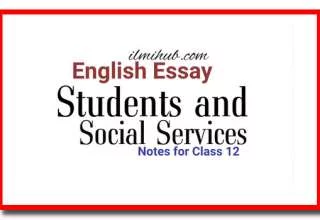
Students and Social Service Essay with Quotations
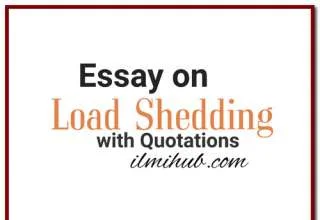
Load Shedding in Pakistan Essay – 1200 Words
Leave a reply cancel reply.
Your email address will not be published. Required fields are marked *

- Privacy Policty
- Terms of Service
- Advertise with Us
Muhammad was a prophet and founder of Islam.
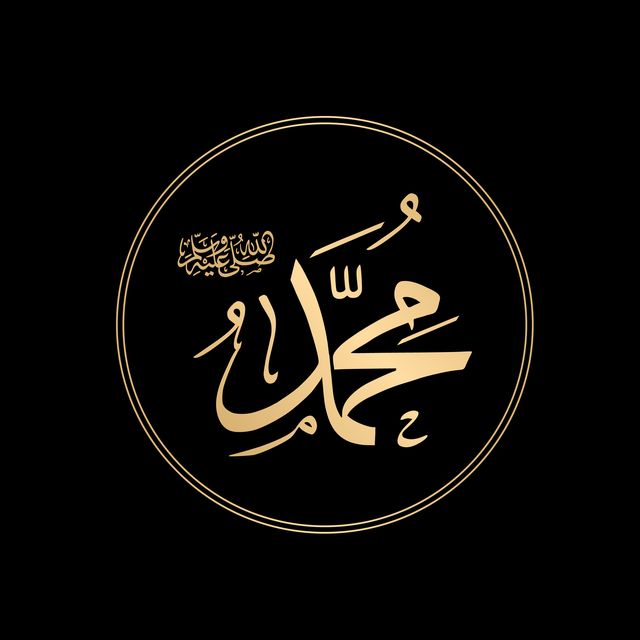
We may earn commission from links on this page, but we only recommend products we back.
Quick Facts
The life of muhammad, the prophet muhammad, the death of muhammad, who was muhammad.
Muhammad was the prophet and founder of Islam. Most of his early life was spent as a merchant. At age 40, he began to have revelations from Allah that became the basis for the Koran and the foundation of Islam. By 630 he had unified most of Arabia under a single religion. As of 2015, there are over 1.8 billion Muslims in the world who profess, “There is no God but Allah, and Muhammad is his prophet.”
FULL NAME: Muhammad ibn Abdullah ibn Abd al-Muttalib ibn Hashim BORN: c. 570 BIRTHPLACE: Makkah, Saudi Arabia DEATH: June 8, 623
Muhammad was born around 570, AD in Mecca (now in Saudi Arabia). His father died before he was born and he was raised first by his grandfather and then his uncle. He belonged to a poor but respectable family of the Quraysh tribe. The family was active in Meccan politics and trade.
Many of the tribes living in the Arabian Peninsula at the time were nomadic, trading goods as they crisscrossed the desert. Most tribes were polytheistic, worshipping their own set of gods. The town of Mecca was an important trading and religious center, home to many temples and worship sites where the devoted prayed to the idols of these gods. The most famous site was the Kaaba (meaning cube in Arabic). It is believed to have been built by Abraham (Ibrahim to Muslims) and his son Ismail. Gradually the people of Mecca turned to polytheism and idolatry. Of all the gods worshipped, it is believed that Allah was considered the greatest and the only one without an idol.
In his early teens, Muhammad worked in a camel caravan, following in the footsteps of many people his age, born of meager wealth. Working for his uncle, he gained experience in commercial trade traveling to Syria and eventually from the Mediterranean Sea to the Indian Ocean. In time, Muhammad earned a reputation as honest and sincere, acquiring the nickname “al-Amin” meaning faithful or trustworthy.
In his early 20s, Muhammad began working for a wealthy merchant woman named Khadijah, 15 years his senior. She soon became attracted to this young, accomplished man and proposed marriage. He accepted and over the years the happy union brought several children. Not all lived to adulthood, but one, Fatima, would marry Muhammad’s cousin, Ali ibn Abi Talib, whom Shi’ite Muslims regard as Muhammad’s successor.
Muhammad was also very religious, occasionally taking journeys of devotion to sacred sites near Mecca. On one of his pilgrimages in 610, he was meditating in a cave on Mount Jabal aI-Nour. The Angel Gabriel appeared and relayed the word of God: “Recite in the name of your Lord who creates, creates man from a clot! Recite for your lord is most generous….” These words became the opening verses of sūrah (chapter) 96 of the Qur'an. Most Islamic historians believe Muhammad was initially disturbed by the revelations and that he didn’t reveal them publicly for several years. However, Shi’a tradition states he welcomed the message from the Angel Gabriel and was deeply inspired to share his experience with other potential believers.
Islamic tradition holds that the first persons to believe were his wife, Khadija and his close friend Abu Bakr (regarded as the successor to Muhammad by Sunni Muslims). Soon, Muhammad began to gather a small following, initially encountering no opposition. Most people in Mecca either ignored him or mocked him as just another prophet. However, when his message condemned idol worship and polytheism, many of Mecca’s tribal leaders began to see Muhammad and his message as a threat. Besides going against long standing beliefs, the condemnation of idol worship had economic consequences for merchants who catered to the thousands of pilgrims who came to Mecca every year. This was especially true for members of Muhammad’s own tribe, the Quraysh, who were the guardians of the Kaaba. Sensing a threat, Mecca’s merchants and leaders offered Muhammad incentives to abandon his preaching, but he refused.
Increasingly, the resistance to Muhammed and his followers grew and they were eventually forced to emigrate from Mecca to Medina, a city 260 miles to the north in 622. This event marks the beginning of the Muslim calendar. There Muhammad was instrumental in bringing an end to a civil war raging amongst several of the city’s tribes. Muhammad settled in Medina, building his Muslim community and gradually gathering acceptance and more followers.
Between 624 and 628, the Muslims were involved in a series of battles for their survival. In the final major confrontation, The Battle of the Trench and Siege of Medina, Muhammad and his followers prevailed and a treaty was signed. The treaty was broken by the Meccan allies a year later. By now, Muhammad had plenty of forces and the balance of power had shifted away from the Meccan leaders to him. In 630, the Muslim army marched into Mecca, taking the city with minimum casualties. Muhammad gave amnesty to many of the Meccan leaders who had opposed him and pardoned many others. Most of the Meccan population converted to Islam. Muhammad and his followers then proceeded to destroy all of the statues of pagan gods in and around the Kaaba.
After the conflict with Mecca was finally settled, Muhammad took his first true Islamic pilgrimage to that city and in March, 632, he delivered his last sermon at Mount Arafat. Upon his return to Medina to his wife’s home, he fell ill for several days. He died on June 8, 632, at the age of 62, and was buried at al-Masjid an-Nabawi (the Mosque of the Prophet) one of the first mosques built by Muhammad in Medina.
Fact Check: We strive for accuracy and fairness. If you see something that doesn't look right, contact us !
The Biography.com staff is a team of people-obsessed and news-hungry editors with decades of collective experience. We have worked as daily newspaper reporters, major national magazine editors, and as editors-in-chief of regional media publications. Among our ranks are book authors and award-winning journalists. Our staff also works with freelance writers, researchers, and other contributors to produce the smart, compelling profiles and articles you see on our site. To meet the team, visit our About Us page: https://www.biography.com/about/a43602329/about-us
Famous Religious Figures
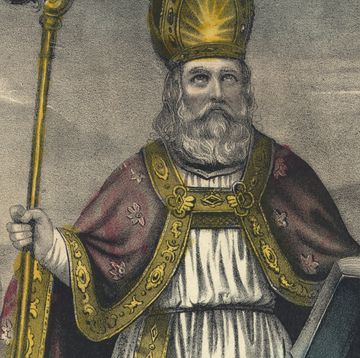
Saint Nicholas
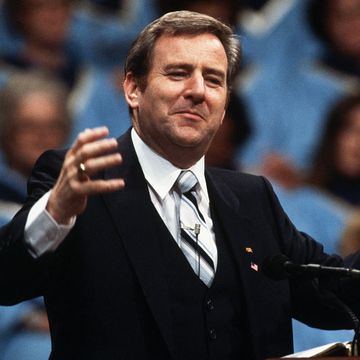
Jerry Falwell
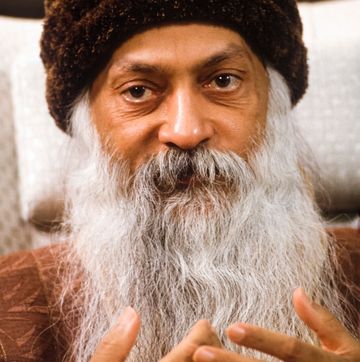
Bhagwan Shree Rajneesh
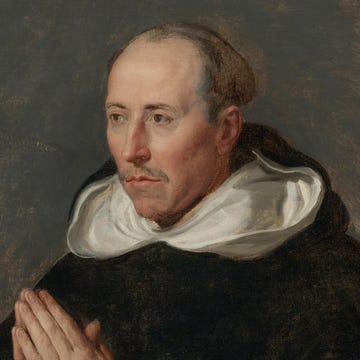
Saint Thomas Aquinas
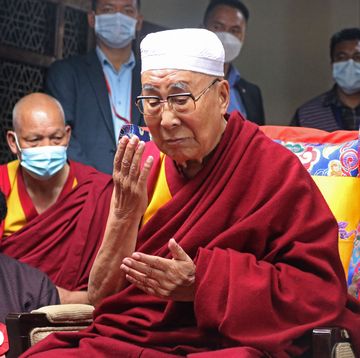
History of the Dalai Lama's Biggest Controversies
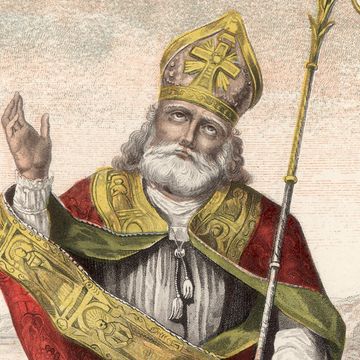
Saint Patrick
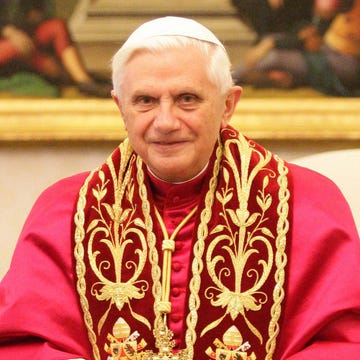
Pope Benedict XVI
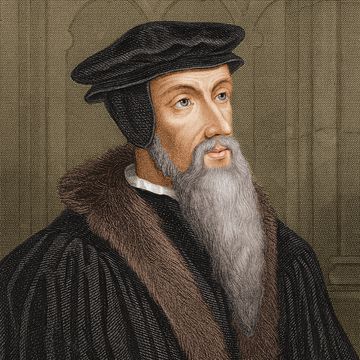
John Calvin
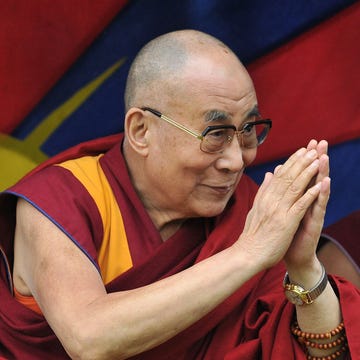
Pontius Pilate
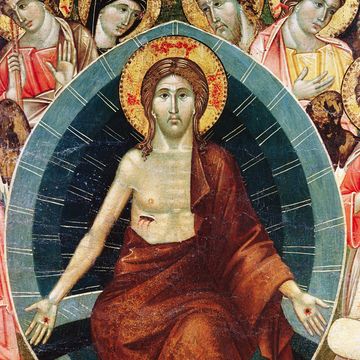
Jesus Christ
The Life of the Prophet Muhammad Essay
Muhammad was protected from a life of oppression by his uncle, who offered him work in his effective cavalcade occupational. Married to a wealthy entrepreneur in her individual precise Muhammad’s axiom immediately showed how the essential kinfolks of the Quran survived (Alalwani & Islam 2021). They stayed egotistical, thoughtless, and selfish, understood solitary in resources, and acquired no accountability for persons freestanding their instantaneous, exclusive disk. Muhammad’s aphorism this deterioration in old-style beliefs is a danger to the actual survival of his society.
However, we must remember that the divisions of Muhammad’s lifetime were transcribed to fashionable content customs and comprised of astounding and mythological landings that strength remains misconstrued today. For instance, we partake eminent through the divisions immediate the Axial Statesmen, the Old Testament then Gospels, and such versions are not en route for been taken factually.
No god but then God, they “purpose as foretelling topos: a conservative literateness theme established in record traditions. These landing resembling the beginning accounts now the Gospels. These landings is not proposed to narrate past occasions but to clarify the anonymity of the farsighted involvement. They respond to the interrogations: What ensures it means to stay a prophet? … The aforementioned is not essential whether the divisions recounting the infantile of Muhammad or Jesus remain factual (BinTaleb & Aseery 2022). What is imperative is these sections approximately around our sovereigns: that theirs stands a righteous and everlasting inclination, recognized by God since the instant of formation”.
Muhammad stayed innate in Mecca, the time acknowledged as the Time of the Monster, in which Mecca remained unbelievably protected. Harun says that Abraham, the Abyssinian Christian monarch, criticized Mecca through a flock of elephant’s trade-in from Africa. Abraham’s goalmouth remained to terminate the Ka’ba and brand the Christian religious’ the new-fangled spiritual center of the Arab sphere (Harun et al., 2021). The horrified Quraysh had not ever understood an elephant, copious less than an entire crowd; therefore, they sprinted to the mounts to seepage, leaving the Ka’ba via no defense. Then impartial by confronted, the sky departed shadowy as a herd of fowls, all resounding a rock in its mouth, showered miserable on the conquering military, which existed enforced to withdrawal.
Numerous stories border his infantile and birth, which stayed proclaimed in an account comparable to the Christian division of Mary: Muhammad’s mommy, a widow, called Amina, one time received a voice saying to her (Harun et al., 2021).“You convey now your womb the peer of the realm of this individuals, and once he is instinctive, say: ‘I home him underneath the safeguard of the One, since the wicked of each jealous person,’ then and their designation him Muhammad.”
Now Muhammad, the Ecosphere Changer, Muhammad Jebara, the historian then researcher of Semitic tongues, delivers a changed story of Muhammad’s lifespan and initial ages discarded from widespread exploration into creative foundations. Retain in cognizance that, in mutual with different Semitic dialects, Arabic arguments are frequently fabricated starting three or four communication origins, every source providing the essential connotation. Tabroni et al., (2022) discoveries designate that Muhammad’s title remained specified to him through his grandpa. That predestined ‘the archetypal one’ “so that his specimen might have triumphed in the uppermost spaces and his title would originate towards been recognized amongst the states.”
Additionally, the source H-M-D “defines somebody perpendicular on a prominent podium who validates movements to remain rivaled by observers” records (Tabroni et al., 2022). The preface M that twitches the label (Tabroni et al., 2022) “malformed the source achievement designated from approximately predetermined to approximately ageless…Muhammad pronounces a continuous public of liability, unendingly inspirational others to inspire his occurrence.”
Before the exposure, he consumed no knowledge that his intention would remain to gadget these crucial variations. He began as a negligible fraternity. Hashim and academics point to the view that in communal through other clairvoyants earlier than him. He primarily required nonentity to fix through what was fashionable and remained exceptionally distressed (Alalwani & Islam 2021). “Mohammad’s power devises disappeared through his proposal towards ending it all, and then antiquity would have curved out fairly differently.”
Alalwani, R. T., & Islam, A. (2021). New paradigm in addressing islamophobia: An analytical study based on the life of the Prophet Muhammad (PBUH). Intellectual Discourse, 29 (1), 71-88. Web.
BinTaleb, A., & Aseery, A. (2022). What can the Prophet Muhammad teach us about pandemics? Journal of Religious & Theological Information, 21 (1-2), 82-94. Web.
Harun, D. R., Rasyid, A. D., Lubis, A., Mohd, M. A. W. F. B., & Rasyid, B. D. (2021). The writing of Hadith in the era of Prophet Muhammad: A critique on Harun Nasution’s thought. Al-Jami’ah: Journal of Islamic Studies, 59 (1), 191-220.
Tabroni, I., Putra, D. D., & Adawiah, N. (2022). Forming character with morals Prophet Muhammad saw. East Asian Journal of Multidisciplinary Research, 1 (1), 41-48. Web.
- Chicago (A-D)
- Chicago (N-B)
IvyPanda. (2023, April 5). The Life of the Prophet Muhammad. https://ivypanda.com/essays/the-life-of-the-prophet-muhammad/
"The Life of the Prophet Muhammad." IvyPanda , 5 Apr. 2023, ivypanda.com/essays/the-life-of-the-prophet-muhammad/.
IvyPanda . (2023) 'The Life of the Prophet Muhammad'. 5 April.
IvyPanda . 2023. "The Life of the Prophet Muhammad." April 5, 2023. https://ivypanda.com/essays/the-life-of-the-prophet-muhammad/.
1. IvyPanda . "The Life of the Prophet Muhammad." April 5, 2023. https://ivypanda.com/essays/the-life-of-the-prophet-muhammad/.
Bibliography
IvyPanda . "The Life of the Prophet Muhammad." April 5, 2023. https://ivypanda.com/essays/the-life-of-the-prophet-muhammad/.
- Finite Difference Solution to Dam seepage Problems
- Ecosphere Care in the United States
- Evidence of Transformation in Islam
- Analysis of "Inextinguishable Fire and Cut Piece" by Harun Farocki
- Islam: The Origin and Early Expansion
- Trade-In: “Second Life” for Old Things
- Axiom Telecommunications and Customer Satisfaction
- Funding Sources for Mommy and Me Apparel Company
- Cash for Clunkers Program
- Dealing With the Death of a Grandfather
- Paul’s Life and Significance for the Church Today
- Evangelical Billy Graham's Life and Ministry
- Analysis of Saint Anthony of Padua
- Martin Luther. Roman Catholicism
- Report on Dr. King’s Letters
Tolerance and Forgiveness in the Life of the Holy Prophet (PBUH)
The last Prophet of Islam, Hazrat Muhammad (PBUH) is the perfect embodiment of great human qualities. As mentioned in the Holy Qur’an, the life of the Holy Prophet (PBUH) is a perfect example for us.
Among other a great many qualities, ‘Tolerance and Forgiveness’ are those upon which Islam has largely insisted. These human attributes are at first hard to inculcate, but once inculcated; they would make society peaceful and the world an ideal place to live in. It would be very apt to mention that only courageous and strong people own these qualities.
Throughout his life, the Prophet PBUH has depicted these qualities through his actions and speech. It was on the observance of such qualities that a large number of non-believers embraced Islam.
Examples of Tolerance and Forgiveness in the Life of the Holy Prophet (PBUH)
When the Prophet (peace and blessings of Allah be upon him) started preaching Islam, a large number of disbelievers became his enemies. Therefore, the Prophet (PBUH) had to face many hardships. It was because of his great patience and tolerance that the Holy Prophet (PBUH) not only endured their harsh treatment but also prayed for their guidance in return.
In his early years of preaching, when the Prophet (PBUH) invited the people of Taif to Islam, he (PBUH) was subjected to stone-pelting and an unbearable response by the people of Taif. The angel Jibrael (A.S) appeared on the spot and demanded to order the destruction of those people and he would turn the mountains over them. To his infinite patience, tolerance, and forgiveness, in lieu of revenge, he chose to pray from Allah for their guidance.
Moreover, the non-believers of Makkah used to throw trash and garbage on the doorsteps of the Prophet (PBUH), he (PBUH) stood for all that treatment meted out to Him with great patience and tolerance and stayed consistent in preaching Islam.
As narrated by Ibn Sa’d in his work on history, al-Tabaqat that Through ‘Aisha (may Allah be pleased with her) that the Prophet (peace be upon him) was reported to have said,
“I was [living, in Mecca] between the two worst neighbors [one could have]: between Abu Lahab [his uncle and sworn enemy] and ‘Uqbah ibn Abi M’uayt [who once threw a sheep’s insides on his blessed head, peace be upon him, while he was praying]. Indeed, they would come with bloodied intestines and throw it on my doorstep…”
It is also reported about the wife of Abu Lahab, namely ‘Umm Jamil’ who would place thorny branches overnight in the path where the Prophet PBUH would walk. Still, many such incidents have gone unreported.
Once, there was some matter of payment, and a person asked the Prophet (PBUH) to wait for him at the place while he would just go and return from home. That person, later on, forgot and didn’t return, while the Prophet (PBUH) kept waiting for him there for almost three days. When he remembered the commitment, the person came back and found the Prophet (PBUH) there waiting for him. This one incident fully elucidates the level of patience and tolerance that our Prophet (PBUH) has practiced in his life.
When Makkah was conquered, non-believers feared that as Muslims were in a dominant position of authority, they would take revenge on them. But, on that day, the Holy Prophet (PBUH) declared amnesty for everyone. He ordered his army to fight only those who would rise in their opposition. He had forgiven all the bloodshed of the past.
Concluding Thoughts
To conclude, whatever Allah has commanded in the Quran for our guidance, the Holy Prophet has practiced that throughout his life to make his Ummah understand the Quranic injunctions. Allah Himself is the most merciful and commanded us to practice tolerance and forgiveness in our daily affairs.
Alas! We have completely ignored the golden codes of life given by Islam. Thus, the whole Muslim Ummah is cleaved today, giving way to hatred and prejudice for other sects.
At present, it is due to a lack of tolerance for each other’s diverging beliefs that the whole Muslim world is divided and scattered. That is the reason why in spite of being the followers of true religion, Muslims are lagging far behind the rest of the world, i.e. non-believers, in many fields.
Today, Muslims are being labeled as terrorists for fighting against each other. Moreover, they are being persecuted in many regions of the world. But, the required collective response from the Muslim world which is the need of the hour, is altogether missing.
The incidents of the Shia-Sunni rift and violence speak volumes of intolerance among Muslims. While our Prophet (PBUH) has even remained tolerant and forgiving to non-believers, today Muslims can’t even tolerate the diverging opinions and beliefs of their fellow Muslims.
Furthermore, where Quran clearly teaches tolerance towards non-Muslims as in the following ayat, the incidents of persecution of minorities and forced conversions are common.
“For you is your religion, and for me is my religion.” Quran 109:6
It is a dire need of the hour that instead of spreading hatred against other sects, religious scholars must promote tolerance and forgiveness, which is the real message of Islam. The life of the Prophet (PBUH) which is the perfect embodiment of love and tolerance must be taught to the young generation. Instead of being vindictive, we must practice forgiveness, for the sake of Allah whose bounties are infinite.
Once the Prophet (PBUH) was asked, “What is Eemaan (belief/faith)?” He (SAW) replied: “Eemaan (faith) is patience and tolerance.”
- Status and Rights of Women in Islam
You may also like

Is Freelancing Halal In Islam

Is Photography Haram In Islam? What do Islamic...

70 Major Sins in Islam

Is Banking Job Halal In Islam? Answering in the light...

Is Life Insurance Halal? Fatwas on Life Insurance

Dua for Anxiety and Depression
About the author.
A versatile human being with a passion for reading and writing - always striving for growth, living in the moment but trying to keep pace with the evolving world.
[…] Quresh-e-Makkah asked three questions from the Prophet Muhammad […]
outstanding
[…] source of forgiveness no matter how many sins one has […]
[…] This verse is significant in promoting tolerance in an Islamic society. Moreover, one can find and learn exemplary tolerance and forgiveness from the life of Prophet Muhammad PBUH. […]
Leave a Comment X
Save my name, email, and website in this browser for the next time I comment.


A True Learning Portal
Essay The Holy Prophet Muhammad for Class 8
Essay The Holy Prophet Muhammad (PBUH) for Class 8
Essay the holy prophet muhammad (pbuh) for class 8.
Hazart Muhammad (PHUH) was born in Makkah. A few months before the birth of the Holy Prophet, His father Abdullah had died. His mother also passed away at the age of six. He was brought up by his grandfather Hazrat Abdul Mattlib. After the death of his grandfather his uncle, Hazrat Abu Talib brought up Hazrat Muhammad (PBUH). He was known as an honest and virtuous man during his early age. He was loved and respected by all. He was called “Sadiq and Ameen”. A rich widow of Makkah Hazrat Khadija (R.A) offered to marry him.
Essay Holy Prophet SAW in English
The Holy Prophet married her when he was twenty-five years of age. At the age of forty, he received the message of Allah. He proclaimed himself a messenger of Allah. He asked the Makkans to believe in Allah’s Oneness and give up idol worship and evil ways. At this, they became his enemy. The Makkan tortured him and other Muslim fellows so much that they migrated to Madina. Madina became the center of Islamic activities. At Madina, the Muslims were free to preach Islam. They lived freely at Madina. The people of Makkah could not bear the progress of the Muslims. Many battles were fought between them.
At last, the Muslims were the conquerors. At the fall of Makkah, the Muslims overcame the whole of Arabia. Nearly all Arabian tribes embraced Islam. People from other countries also embraced Islam as well. The Mission of the Holy Prophet Hazart Muhammad (PBUH) was completed. At the age of sixty-three, Holy Prophet passed away. He is the last Prophet of Allah.
Published on: Jul 17, 2022, at 15:48
Download Essay The Holy Prophet (PBUH) for class 8
Translation of Essay The Holy Prophet for class 8

Please follow us on social media links: –
Story the fox and Grapes for Class 7
Essay our headmaster in english for class 7, essay a picnic party for class 7, related posts, essay on quaid e azam muhammad ali jinnah class 10, essay on life in big city for class 10, essay on boys scouting for class 10.


The Holy Prophet(saw)’s Kindness
The Holy Prophet of Islam (saw) is a unique person in the history of the creation of this earth. None like him was born before him and none like him will ever be born again.
Muslims from all walks of life and from all corners of the world, young and old, educated and uneducated, rich and poor, divided by geography, race and language, are all united in their reverence and devotion to the Holy Prophet (saw) , to the religion of Islam and the Holy Qur’an.
What was so special, extraordinary and unique about the Holy Prophet (saw) that he should have been chosen by God as a supreme example to guide mankind to ideals of happiness and perfection?
Whatever aspect of life we look at or whichever dimension of the life of the Holy Prophet (saw) we try to explore, we find strength and nobility of character and serenity or inner-calm, which comes with communion with God in the fullest sense. Nobility, generosity and magnanimity of the Holy Prophet (saw) shows itself most of all in charity and kindness to all men and more generally to all beings. There was no narrowness or pettiness in the soul of the Holy Prophet (saw) and no limitation in giving of himself to others. His blessed life is full of examples that have kept generations of Muslims inspired.
Of many, I will illustrate only one instance in the life of the Holy Prophet (saw) to prove his care and generosity towards his fellow-beings.
When the Quraish (dominant tribe in Makkah at the time) doubled and redoubled their injuries to the Holy Prophet (saw) and his followers, he undertook a trip, alone, to the city of Ta’if where after calling them to Islam he sought the support of the tribe of Thaqif . His words to worship One God caused a storm of anger. They drove him from the city and the rabble and slaves followed him, hooting and pelting him with stones until the evening.
Wounded and footsore, bleeding and weary, the Holy Prophet (saw) took shelter under the shades of some palm trees.
Imagine the plight of a person who has been persecuted all day, famished, hungry, thirsty and unprotected, sitting exposed under a palm tree. Did he seek revenge? Did he pray to Allah to destroy the city of Ta’if?
He did none of these things. Instead, the Holy Prophet (saw) raised his hands towards heaven and cried out:
“O Lord, I make my complaint to Thee out of my feebleness. I am insignificant in the eyes of men. O Thou Most Merciful! Lord of the weak! Thou art my Lord! Do not forsake me! Leave me not a prey to strangers nor to my enemies! If Thou art not offended, I am safe. I seek refuge in the Light of Thy countenance, by which all darkness is dispelled and peace comes here and hereafter. Let not Thy anger descend on me! Solve my problems as it pleases Thee. There is no power, no help but in Thee.”
Nothing can show more vividly the generosity, love for mankind and absolute faith in Allah the Almighty that the Holy Prophet (saw) possessed than this incident. As long as Allah the Almighty is not offended, the Holy Prophet (saw) was happy to suffer any indignity to convey the message with which he was entrusted. William Muir is forced to comment:
‘There is something lofty and heroic in this journey of Muhammad to Ta’if: a solitary man, despised and rejected by his own people, going boldly forth in the name of God, like Jonah to Nineveh and summoning an idolatrous city to repent. It sheds a strong light on the intensity of his belief in the divine origin of his mission.’ ( Life of Mahomet, Sir William Muir , pp . 112-113)
Another incident, in total contrast to the Ta’if incident, in the life of the Holy Prophet (saw) that shows his nobility, generosity and beneficent attitude to human beings is the triumphant entry into Makkah, which in a sense, highlights his earthly career. There he was – at the moment of supreme triumph, when the very people who had caused him untold hardship and trials for many years, who had forced him to fight wars were all subdued and at the mercy of one command from him. Instead of thinking of revenge, which was certainly his due, he forgave them all.
Karen Armstrong, commenting on the final triumph, says:
‘After the declaration of General Amnesty, nobody was made to accept Islam by force, nor do they seem to have been under any pressure to do so. Muhammad did not want to coerce the people but to effect a reconciliation.’
The Holy Prophet (saw) ’s behaviour and his vision of a balanced and harmonious life on earth is based on the integration of the temporal and spiritual dimension of one’s life, human reality and relationship with God Almighty.
Indeed, for every occasion, for every circumstance in the life of a Muslim, there is a precedent in the life of the Holy Prophet (saw) from which knowledge and inspiration can be drawn.
The Holy Qur’an is the vast world of creation in which a Muslim lives and the Holy Prophet of Islam (saw) is the interpreter par excellence of that Divine message. That is why all Muslims, all over the world, look up to the life of the Holy Prophet (saw) of Islam to follow his example.
When we look at the history and circumstances of the time of the advent of the Holy Prophet (saw) , we see Arabia and the rest of the world around steeped in corruption and the forces of falsehood were in ascendancy. There was nothing but the forces of disruption and disequilibrium surrounding the world. As the Holy Qur’an sums up the situation:
‘Corruption had appeared on land and sea because of what men’s hands have wrought, that He may make them taste the fruit of some of their doings, so that they may turn back from evil .’ (Ch.30:V.42)
The verse explains that when darkness covers the face of the earth and man forgets God and surrenders to the gods of his own conception, then God raises a Prophet to guide them to the true path.
It was under such circumstances that the Holy Prophet (saw) of Islam was raised. The purpose of his advent as given in the Holy Qur’an is:
…He enjoins on them good and forbids evil and makes lawful for them good things and forbids them the bad things and removes from them their burdens and shackles that were upon them… (Ch.7:V.158)
Such were the circumstances of the time. The Holy Prophet (saw) of Islam broke the chains and shackles that had enslaved humanity and removed the burden under which the humanity was being crushed.
He achieved that revolution with his prophecy and personal example; and humanity was able to raise its head once again with pride.
The Promised Messiah (as) , the true and devoted servant of the Holy Prophet (saw) describes it as:
‘The time when the Holy Prophet was raised was such that it was crying out for a Divine Reformer and a Guide from Heaven with a grand design; and the teachings that he brought were full of verity and contained everything that was needed at that time. …… The ultimate purpose of prophethood is the salvation and freedom of humanity. It was accomplished by him so perfectly that no other prophet had been able to achieve before in his time.’ ( Baraheen-e-Ahmadiyya , pp.112-114)
History tells us that before the advent of the Holy Prophet (saw) , women were treated as chattel and in some tribes, newly-born girls were buried alive. Like slaves, women were treated as inferior species that had no legal existence. In such a primitive world, what the Holy Prophet (saw) achieved was remarkable. The very idea that a woman could act as a witness or could inherit anything at all in her own rights, was unthinkable.
We must remember that in Christian Europe, women had to wait until the 19th century before they had anything similar; even then, the law remained heavily favourable towards men. Western feminists have often denounced Islam with regards to the rights of women. They should perhaps look at the Christian traditions that are extremely negative to women.
If Muslim women today reject some of the so-called freedoms that the West offers them, it is not due to any obstinacy but because the Western view of women and relationship between sexes is confused. While preaching equality and liberation, Western society, at the same time, exploits and degrades women in advertising, pornography and popular entertainment in a way that Muslims find offensive.
The Holy Qur’an and Islam give a much more positive picture of the relationship between the sexes, showing men and women sharing the duties and privileges of Islam side by side in an egalitarian society. The Hoy Qur’an declares:
Surely men who submit them-selves to God and women who submit themselves to Him , and believing men and believing women, and obedient men and obedient women and truthful men and truthful women, and men steadfast in their faith and steadfast women, and men who are humble and women who are humble, and men who give alms and women who give alms, and men who fast and women who fast, and men who guard their chastity and women who guard their chastity , and men who remember Allah much and women who remember Him – Allah has prepared for all of them forgiveness and a great reward. (Ch.33:V.36)
This subject is vast and deserves a separate treatment. Let me conclude with a Tradition of the Holy Prophet (saw) . Whenever the Holy Prophet (saw) was to be absent from Madinah, he used to tell Muslims that they should consult Hadhrat ‘A’ishah (ra) if they had any religious problem. After his demise, Hadhrat ‘A’ishah (ra) was an important authority about the Holy Prophet (saw) ’s life and religious practice.
Now I come to the subject of slavery: slavery is an abominable and repulsive system of social inequality in which some people are treated as an item of property belonging to other individuals or social groups. Slavery has existed in human history from antiquity and people have exploited other people or nations for their own gains.
Reading modern history, we only find the mention of the banning of importing slaves in 1807 by the British and the abolition of the institution of slavery in 1833. The historians conveniently forget that the only historical figure who stood up against this practice was none other than the Holy Prophet Muhammad (saw) .
The Qur’an and the Traditions of the Holy Prophet (saw) advise kindness towards slaves and humane treatment and encourage setting them free. The Holy Prophet (saw) himself had a slave called Salman (ra) whom he immediately freed and made him a member of his family. The Holy Prophet (saw) exhorted the believers:
“And as to your slaves, see that ye feed them as ye feed yourselves and clothe them as you clothe yourselves.”
The Holy Prophet (saw) , advised all his followers to free the slaves and suggested that there was not an act more acceptable to God than freeing the slaves. He ordered that slaves should be allowed to purchase their liberty with the wages of their services. The whole tenor of the teachings of the Holy Prophet (saw) made permanent possession of slaves or a caste system impossible. Indeed it is simply an abuse of words to use slavery in English sense to any status known in Islam.
What can be more important than the last words of a dying person? Hadhrat ‘Ali (ra) and Hadhrat Anas (ra) narrate that the last word that they heard from the lips of the Holy Prophet (saw) were, “O Muslims, never ever forget my teachings about Salat [Prayer] and about slaves.”
When these words were said, his wives, daughter and her children, indeed the whole family and his Companions were around him. This was going to be his advice to his people. He did not think of his family. The only thing that worried him in the last breaths of his life was the plight of the slaves and their treatment.
When we look at the Arabian tribal life of the time of our beloved Prophet (saw) , we find that there was no central authority. Every tribal chief was responsible for the protection of his tribal members and had to be prepared to avenge each and every injury. Blood-feuds or vendettas were common. Life was cheap and killing per se was not considered immoral. Robbery was not considered immoral unless you stole goods from your own kinsmen.
This was a savage and brutal society in which only the strong would survive and weak were either eliminated or exploited. Infanticide was a normal way of population control. Indeed, women, like slaves, had no human or legal rights. Although property was sometimes inherited by women, men married them to take away their legal inheritance.
When the Arabs of that period fought their battles, they made no distinction between combatants and non-combatants, women and children or old and disabled.
In such a savage and unregulated society, our beloved Prophet (saw) stands out as a refreshing example of the protector of the weak and laid down the rules of combat.
Ibn Hisham states that the Holy Prophet (saw) , the beneficiary for mankind, sent out an expedition to face a Bedouin tribe that had occupied Madinite territories with the historical and memorable words, “In no case shall you use deceit, nor shall you kill any child.” When dispatching his troops against the Byzantines, the Holy Prophet (saw) instructed them:
- Never injure the weak in avenging the injuries inflicted upon us.
- Do not molest the harmless inmates of domestic seclusion or people devoted to any religion.
- Spare the women, children and old people.
- Do not injure the infants at the breast, or those who are ill in bed.
- Abstain from demolishing the dwellings of the unresisting inhabitants.
- Do not destroy their means of subsistence, nor their fruit trees and touch not the palm tree.
- No animal should be killed.
- Do not disfigure your enemy by cutting off their nose, ears or other organs.
The complete list is much longer and more elaborate. It covers the treatment of prisoners of war and their remission. It is important to remember that the above instructions were not a result of any agreement but self-imposed rules to respect the old, the innocent, the disadvantaged, the infirm and respect God’s creatures and preserve the environment.
The Western world first made an international agreement on the conduct of warfare in 1864 and called it Geneva Convention. It was ratified in 1906. But it was not until 1950 and again in 1978 that it was extended to include rights of non-combatants and protection to civilians. The world forgets that it was the humanity of one great man of Arabia, whose every heartbeat, every thought and every action was a mercy for mankind and who gave this Charter to the world 1300 years before the West even thought about it.
As I said in the beginning, our beloved Prophet of Islam (saw) came as a Mercy for mankind and provided protection to the weak and freed humanity that was held under bondage. By his very example, he showed how mutual love, tolerance and understanding can make diverse societies live together.
We only have to look at the life of the Prophet (saw) when he migrated to Madinah after suffering years of persecution in Makkah. Madinite society consisted of Muslims, Jews, pagans and Christians. He entered into an agreement or a treaty known as Meethaq-ul-Madinah. This document has been carefully preserved in the pages of Ibn Hisham. The Covenant of Madinah clearly shows the genius of the Holy Prophet (saw) . In this regard, William Muir called the Holy Prophet (saw) ‘A master-mind, not only of his own age but of all ages.’
The document is long and detailed and needs separate treatment. Suffice to say, that this first document between a heterogeneous society and Muslims gave full and equal rights to non-Muslims.
The above Covenant that the Holy Prophet (saw) had written down fourteen centuries ago established the freedom of faith and opinion, sanctity of human life and property and forbiddance of crime.
It was around the 6th year after Hijrah that the Holy Prophet (saw) granted to the monks of the monastery of Saint Catherine near mount Sinai and to all Christians a Charter which is still known as one of the noblest evidences of enlightened tolerance that the history of mankind can produce. This remarkable document that has been preserved by the historians of Islam, shows a wonderful breadth of liberality. By this, the Holy Prophet (saw) secured for Christians the privileges and immu-nities that they never possessed under the rules of their own kings. The Charter is very detailed but some of the provisions show the merciful nature and the greatness of character of the Holy Prophet (saw) . The Charter enjoins all Muslims to protect the Christians and defend their churches. The Holy Prophet (saw) declared that any Muslim violating or abusing his orders should be regarded as violator of God’s testament, a transgressor of God’s commandment and His faith.
Let those who allege that Islam was spread by force, remember that Islam protected the fundamental rights of all religions and respected and defended them against violence.
The scholars agree that as long as the Muslims followed the above teachings, they ruled over a large part of the world for 1000 years. But when they forgot, their decline started.
Alas! Muslim of today have forgotten the Sunnah of the beloved Prophet (saw) and have started to preach and practise sectarianism thus shattering the unity of the Ummah that the Holy Prophet (saw) strived to put together in his life-time.
It is not possible to give all the details or a comprehensive vision of the kindness to mankind that the Holy Prophet (saw) rendered or deal with the social and spiritual revolution that he brought for humanity. Even in his last Sermon, he was thinking of the Rights of Mankind. In fact his last sermon is a Charter of Human Rights the like of which was adopted by civilised nations in 1948.
The Sermon emphasised to Muslims the regard of others and the regard of life and property, equal rights of men and women and their mutual obligations, the rights of slaves, their equal treatment and their right to freedom, the equality of mankind irrespective of colour, creed or national affiliations. And so it con-tinues to lay down rules and guidance for mankind to live in peace and harmony.
Besides the above reforms, our beloved Prophet Muhammad (saw) was always and at every opportunity thinking of the justice and social welfare of the people. The Bait-ul-Maal , or the public treasury, was meant to help the poor, the disabled and disadvantaged. His followers followed his injunctions faithfully as can be seen from one remark of Hadhrat ‘Umar, the Second Khalifa (ra) (spiritual successor) to the Holy Prophet (saw) . He once said:
“ If I know that a dog on the banks of River Tigris has gone to sleep hungry, then I have been negligent in my duty.”
His emphasis on education that you must seek knowledge even if you have to travel to China, is another guidance that only now the world has started to realise.
His emphasis on social justice and on justice is exemplary and unique. His practice of charity is a model for all of us. He used to give everything away and kept nothing back. After his demise, nothing of value was found in his house.
Indeed, the figure of Holy Prophet Muhammad (saw) as a guide of men in this world and the next and his multiple role of ‘prophet’ and guide of men and ruler of a new social order can only be compared with prophet-kings of the Old Testament, to David (ra) or Solomon (ra) and especially to Abraham (ra) himself.
In the capacity of a prophet, a father and a ruler of a State, he transformed a barbaric and uncivilised society into a disci-plined, tolerant, humanitarian society that went on to leave its mark on the world history and his commandments are still guidance and inspiration for billions of Muslims all over the world. That is why it is absolutely essential for us to follow in his footsteps if we aspire towards spiritual realisation. He indeed was a mercy to mankind!
My rendering will not be complete without expressing the emotions and feelings of the Promised Messiah (as) , the true servant of the Holy Prophet (saw) , for his Master and Guide. He says:
‘O Allah! send down your blessings on Your Prophet and on Your Beloved, The Chief of all Prophets, Superior to all, Best among the Messenger and the Seal of the Prophets, Muhammad (saw) and his people and his Companions and shower Your blessings and peace upon them.’ ( Baraheen-e-Ahmadiyyah , pp.256-265, footnote 11)
The love that the Holy Prophet (saw) gave to humanity and his kindness towards all the creations of Allah, make it obligatory upon all Muslims to feel gratitude and love for him.
Allah and His angels send blessings on the Prophet. O ye who believe, you also should invoke blessings on him and salute him with the salutation of peace. (Ch.33:V.57)
Related posts:
- The Philosophy of the Teachings of Islam – Final Part
- The Devastating Consequences of a Nuclear War and the Critical Need for Absolute Justice
You may also like

What does Islam say about Prisoners of War?
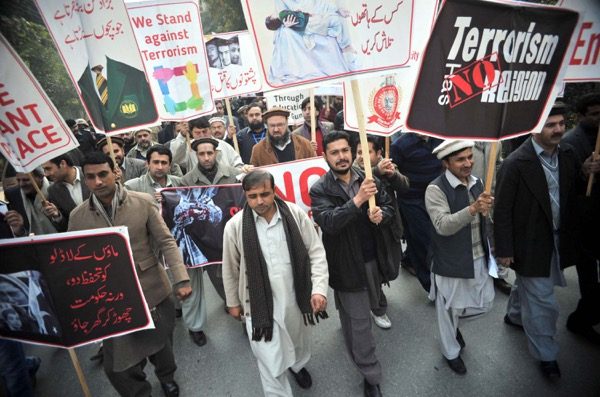
From The Archives: The Search for “Enlightened Moderation” in Pakistan
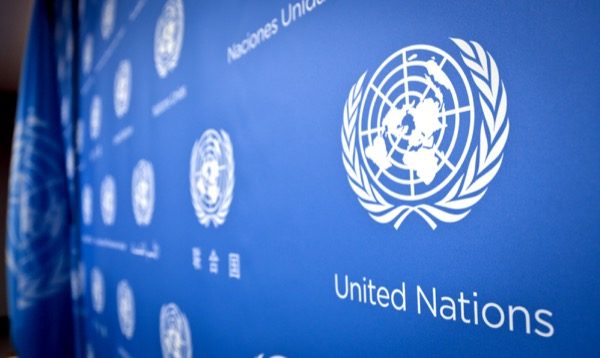
The Keys to Peace in a Time of Global Disorder
16 comments, cancel reply.
I like this page and it is full of information of the Holy Prophet(saw). May God Bless you, whoever wrote this.
I love my Holy Prophet(saw) so much and this page is very informative for all of us.
I love the Holy Prophet(saw) and this page’s writer has done Sadqa-e-Jariya.
Mashaallah, well written.
Allahumma salli alaa Muhammadin wa ala aali Muhammadin.
May Allah enable us to be his true followers.
The speech is so wonderful
I am really impressed and this is so good. I know everything about the Holy Prophet(saw) with the help of the above topic. Thanks
MashaAllah, this gave a clear understanding of how the Holy Prophet Muhammad(saw) struggled for the sake of humanity. May Allah guide all humans to follow in Muhammad(saw)’s footsteps.
Thank you, Salaam Alaikum.
Amazing speech MashaAllah
MashaAllah, it is written with the love of the Holy Prophet(saw) in the heart.
Excellent speech. I liked it very much.
This note is amazing! I love it from my heart!
This topic increased my knowledge about the Holy Prophet(saw) and I liked it very much.
SubhanAllah very lovely essay.
Good information and a very well written essay.
I really like this page very much.
Related Posts
Recent posts.
- The 5 Apology Languages & Islamic Insights into Forgiveness – Part 2
- From Global Warming to Nuclear Winter: Is It Too Late For the Human Race?
- Friday Sermon Summary April 26th 2024: ‘Incidents From the Life of the Holy Prophet (sa) – ‘The Expedition of Hamra’ al-Asad’
- The 5 Apology Languages & Islamic Insights into Forgiveness – Part 1
- Friday Sermon Summary 19th April 2024: ‘Incidents from the Life of the Holy Prophet (sa) – ‘Martyrs of the Battle of Uhud & the Expedition of Hamra’ al-Asad’
Recent Comments
- Shazia Rehman on Backbiting – Satan’s Dessert
- Shazia Rehman on The Gift of a House from God: A True Story
- Zayn K on The Gift of a House from God: A True Story
- Kate on The Gift of a House from God: A True Story
- MM on The Gift of a House from God: A True Story
- Almas Aasia on The Gift of a House from God: A True Story
- Rawahuddin Khan on Hoping For World Peace
- Mohammed Sbahuddin Rafiuddin on The Case of the Missing Mercedes and Proof of a Living God
- Jalsa Salana
- Existence Project Submissions
- Research Connect
- Hazrat Mirza Masroor Ahmad (aba)
- Secular & Spiritual Treasures of the Promised Reformer NEW
- Religious Concepts
- World Religions
- Archaeology and Ancient Religions
- Science, Medicine and Technology
- The Ancient World
- Christianity
- Contemporary and Social Issues
- Women’s Section
- Coronavirus
- Al-Tafsīr Al-Kabīr: The Grand Exegesis
- Facts From Fiction NEW
- Print Magazine Editions
- Audio Articles
- A Message of Peace
- Barahin-e-Ahmadiyya NEW
- Kashti-e-Nuh Audiobook
- Lecture Lahore
- Lecture Ludhiana
- Lecture Sialkot Audiobook
- The Will Audiobook
- The 100 Year Rewind
- Browse Archive by Month and Year
- Muslim Television Ahmadiyya International
- Subscription
- Spanish Site
- German site
- French Site

Monday 30 January 2017
Our holy prophet (pbuh) english essay for 5th and 8th class.

OUR HOLY PROPHET (PBUH) English Essay:
You may also like:.

About Maher Afrasiab
Hello, I am Maher Afrasiab a founder of Ratta.pk and some other websites. I have created ratta.pk to promote the eductaion in Pakistan. And to help the students in their studies. Find me on Facebook: @Maher Afrasiab
9 comments:

- English Learning Notes
- History Notes
- English Essays
- General knowledge
- Guess Papers
Essay on the Holy Prophet (ﷺ)
.png)
A prophet is a representation or a messenger sent by God to convey divine information and wisdom to people. As the final prophet for all of humanity, God sent the Prophet Muhammad (PBUH). A prophet’s prophecies or revelations are called prophecies, and the person who wrote them down or spoke them aloud is called a prophet.
Read Also: Essay On My School
The Prophet Muhammad (P.B.U.H.) was born on the 12th of Rabi ul Awal according to Islamic Calendar. Out Of all the Prophets, Only Muhammad (PBUH) is the Last Prophet and Messenger of Allah.
At the age of forty years, Hazrat Gabriel was sent towards Prophet Muhammad (PBUH) for Prophethood. When Allah’s close angel Gabriel appeared to him and ordered him to recite. He revealed the Quran through these revelations during a 23-year period.
Read Also: Essay On Corruption
As a result of his effective missionary efforts, which included concentrating on justice, honesty, and trust, he finally gained a lot of followers of people. The faith he started had already achieved wide popularity when he departed to this world.
Allah has sent Muhammads PBUH Into the world to preach his teachings to all humans whether Muslims or non-Muslims. His Aim was to tell people that there is only One God Who is to be worshipped. Muhammad PBUH faced so many hurdles and obstacles during this journey of teaching and preaching Allah’s Messages.
The Prophet Muhammad (PBUH) Spent such a life which acts as a beacon of hope for all the Muslims who have a firm belief in the day of Judgement. He Was the Role Model and an example of dignity. He was like a candle who lighted up the world through the darkness.
The Holy Prophet has been so kind that he even ordered his followers to be kind to animals. He (P.B.U.H.) believed in mercy and kindness. The Holy Prophet (PBUH) not only give teachings to humanity but also paid special attention to animals. He gave the message of being kind to animals. So, when a companion picked up the offspring of a bird and the bird began to shrill wildly, the Prophet (PBUH) asked who had picked up the young ones of the bird and made it restless. At this, the companion placed the young ones back in the same place. Then the bird felt relief. Once, he ordered about a camel to treat it kindly, to feed it sufficiently and to load it according to its strength. It is the saying of the holy prophet: “Show mercy to those who live on Earth, and Allah will have mercy on you.”
During the tenure of Makkah, for thirteen years The Holy Prophet (ﷺ) continuously preached Allah’s Message to the people. He asked people to abandon idolatry and evil doing and worship one Allah. A small group of people including a few prominent people of Makkah became Muslims. But most of the people of Makkah had not embraced Islam yet. They were the worst enemies of the Muslims. The Holy Prophet Muhammad (PBUH) was sent as a mercy to the whole world. One of the victories of Makkah, Prophet Muhammad (PBUH) forgave all their foes.
Muhammad (PBUH) emphasized good relationships with others, including social, economic, and political interactions. The Prophet (PBUH) even taught kindness towards animals, embodying the values of mercy and compassion.
The passion and devotion of Muslims for the last Prophet Muhammad (PBUH) play a strong role in the development of our Islamic knowledge, virtues and manners. His divine guidance is what guides the lives of Muslims both individually and collectively. Muhammad (PBUH) is the last prophet and messenger of Allah and No Prophet will come after him till judgement day.
Read Also: Essay On My Favourite Personality
He was sent to reform humanity and prepare it for the resurrection. His prophecy and revelation are sufficient for all mankind till the end of this world. He declared that no prophet would come after him. Whoever accepts Muhammad as a prophet is refusing to accept one of Allah’s prophets. This shows that their rejection of prophethood means that they are refusing to believe in Allah.
The Hadith that acknowledges the Prophet Muhammad (PBUH) as a human with faults emphasizes that everyone makes mistakes, which is why it is important for every person to follow his teachings. The knowledge and guidance he imparted are not limited to one religion but are for the benefit of all humankind.

Usman Mustafvi
He is an SEO lover, educationist, digital marketer, and founder of Al-Qalam Coaching Center & Pen Portal , which is a free online educational services platform. He has been writing on educational topics such as career counselling, study Abroad, exam preparation, and dozens more. His superpower? Helping students ace their exams!
Similar Posts
2nd year chemistry notes short questions pdf.
Are You Looking For 2nd Year Chemistry Notes For Short Questions? Then You Are In Right Place. We have notes that you can use for your board exams. Furthermore, now you can here download it for free or view it online without downloading anything. Check Also: Class 12th Chemistry Notes Download Also: MCQs For Chemistry…
Essay on My School
Essay on My School – 200 Words Schools are important to society because they provide people with the information and insight they need to flourish in the world. As a fourth-grade student, I attend Al-Qalam Coaching Center, which is located minutes from my house. The school has a big entry gate on that gate…
Class 12th Chemistry Notes Free PDF [ Punjab Boards ]
Are you Searching For Class 12th Chemistry Notes for your latest Punjab Board Exams? Download Also Short Questions 2nd Year Chemistry Notes and Class 12th MCQs For Chemistry. Class 12th Chemistry notes according to the Latest PCTB syllabus. Are You Looking for Such Type Of Chemistry 2nd Year Notes which cover both organic and inorganic…
Essay on Allama Iqbal
Essay on Allama Iqbal – 250 Words Allama Iqbal is one of the most renowned poets and philosophers in the history of Pakistan. He is considered a national hero and his poetry continues to inspire millions of people around the world. He was born in Sialkot, a city in the Punjab region of British…
12th Class Civics Punjab Textbook Board [Download PDF]
Are you searching the Punjab Textbook Board 12th Class book of Civics subject in PDF or ebook? Your search ends here. The internet is full of annoying websites, but we’ve made it extremely easy for you to download the books at full speed. But here at AlQalam Coaching Center, you can download for free a…
2nd Year Physics Guess Paper 2021 | Punjab Boards | Free PDF
Are you looking for 2nd Year Physics Guess Paper 2021 in PDF? You are in the right place.Here at Alqalam Coaching Center, AlQalam Team is dedicated to providing the students what they need in less effort. Check Also: 2nd Year Chemistry Guess 2022 Here you will get the 12th Class Physics Guess paper 2021 for all…

IMAGES
VIDEO
COMMENTS
Essay on The Holy Prophet, Hazrat Muhammad (صلی اللہ علیہ وسلم) Our Holy Prophet (peace be upon him) was born in Makkah in the famous tribe of Quraish. His father, Abdullah died before his birth. So his mother, Amna Bibi looked after him. But she also died when he was only six years old. New, his grandfather, Abdul Muttalib took ...
Muhammad was the prophet and founder of Islam. Most of his early life was spent as a merchant. At age 40, he began to have revelations from Allah that became the basis for the Koran and the ...
The Prophet's Life in Brief. Birth and Rearing. Muhammad was born in Makkah on Rabi` Awwal 12, 570 CE. His father died before his birth. The infant Muhammad was handed to a Bedouin wet nurse to be brought up by her in the healthy atmosphere of the desert. At the age of five, Muhammad returned to the care of his mother, Aminah bint Wahb, but ...
Born in Mecca about 570 CE, Muhammad married a wealthy widow, Khadījah, in 595. In 610 he experienced a vision of the archangel Gabriel.His public preaching aroused opposition from other clans of his tribe. He undertook his miraculous Night Journey from Mecca to Jerusalem, where he prayed with Moses, Jesus, and other prophets.After his clan withdrew its protection, he fled to Medina in 622 ...
Thou art Allah's messenger, and I am Jibril (Gabriel).". Then he raised his eyes and saw the angel, in the likeness of a man, standing in the sky above the horizon. And again the dreadful voice said: "O Muhammad! Thou art Allah's messenger, and I am Jibril (Gabriel).". Muhammad (peace and blessings be upon him) stood quite still ...
He was a Prophet raised by Allah, the Creator and Sustainer of all beings, for the guidance and happiness of conscious beings - mankind and jinn - and the harmony of existence. Therefore, he lived not for himself but for others; he is a mercy for all the worlds. Adapted from the article "The Prophet Muhammad: A Mercy for all Creation" by IslamWeb.
The Prophet ensured arrangements be made to compile a 'bound' copy of the Holy Qur'an - known at the time of the holy Prophet, and also today, as the mus-haf. The Messenger of Allah commissioned Ali son of Abu-Talib to gather and compile the entire Qur'an, which Imam Ali did during the lifetime of the holy Prophet and under his supervision9.
Introduction The Holy Prophet of Islam (saw) - the perfect exemplar, the prince of peace, the pride of the universe - whose life was immaculate and whose character unimpeachable, came into the world as a mercy for all mankind. Yet, for centuries, the opponents of Islam have consistently ignored all that was patently good, noble and beneficent in his life, example and teachings and have ...
This text unfolds the life of the Prophet of Islam in a structured narrative, from the obscure era of pre-Islamic Arabia to the profound impact of his teachings. Explore the Prophet's formative years, his marriages, and the philosophical underpinnings of his actions. Delve into the challenges faced during his public mission, migration, and the establishment of Islamic fraternity.
The Life of the Prophet Muhammad Essay. Muhammad was protected from a life of oppression by his uncle, who offered him work in his effective cavalcade occupational. Married to a wealthy entrepreneur in her individual precise Muhammad's axiom immediately showed how the essential kinfolks of the Quran survived (Alalwani & Islam 2021).
The Holy Prophet (pbuh) was the head of state, and a complete history of his reign is available to us. He (pbuh) was a judge, and full proceedings of all the cases tried by him, along with the judgements awarded by him in those cases, are extant. The Holy Prophet (pbuh) visited the markets and watched how the people conducted their business.
The Biographical Sketch of the Holy Prophet ... Mu hammad Is haq's essay named "Ins an-e-Kamil". I had yearned to write on the topic of the character of the Holy Prophet Mu hammad sa for a longtime. On reading a comprehensive essay on the subject by the Promised Messiah as, my
In short, the Holy Prophet Muhammad (sa) possessed the highest morals. He was the perfect manifestation of divine attributes. He was such a beautiful and perfect example for mankind that even today we can reach God by following him. The Perfect Man (Qadian, India: Nazarat Isha'at, 2015), 32-34. An insight into the Holy Prophet (sa)'s strong ...
Essay on the Holy Prophet. A prophet means a messenger of God to mankind. The mission of a prophet's life is to spread the Word of God. The total number of such prophets is one lac and twenty four thousand. The Prophet of Islam (Peace be upon him) was the last messenger of God to the whole world. The Holy Prophet was born in Arabia' in 571 ...
The Prophet ﷺ said: " Allah is kind and likes kindness in all things" (Bukhari, 6601). His heart ached within him at the corrupt state of his fellow-Meccans and their rejection of One God. The Holy Quran testifies to it in these words: "0 Muhammad, you will, perhaps, consume yourself with grief because the people do not believe ...
The Holy Prophet's (sa) Social Life. The Holy Prophet Muhammad (sa) was full of kindness and compassion when dealing with his family and his companions. He would say, 'The best among you is he who is best towards his family; and I am the best among you in kindness towards my family.'. The Holy Prophet Muhammad (sa) lived a life free of ...
The Holy Prophet (s) and the Sour Grapes One day a poor man brought a bunch of grapes to the Holy Prophet Muhammad as a gift. He was very excited to be able to bring a gift for the Prophet (s). He placed the grapes beside the Prophet (s) and said, 'O Prophet of Allah, please accept this small gift from me'. He was a
As mentioned in the Holy Qur'an, the life of the Holy Prophet (PBUH) is a perfect example for us. Among other a great many qualities, 'Tolerance and Forgiveness' are those upon which Islam has largely insisted. These human attributes are at first hard to inculcate, but once inculcated; they would make society peaceful and the world an ...
Essay Holy Prophet SAW in English. The Holy Prophet married her when he was twenty-five years of age. At the age of forty, he received the message of Allah. He proclaimed himself a messenger of Allah. He asked the Makkans to believe in Allah's Oneness and give up idol worship and evil ways.
The Holy Prophet of Islam (saw) is a unique person in the history of the creation of this earth. None like him was born before him and none like him will ever be born again. Muslims from all walks of life and from all corners of the world, young and old, educated and uneducated, rich and poor, divided by geography, race and language, are all united in their reverence and devotion to the Holy ...
Here is the Our Holy Prophet (PBUH) English Essay for 5th and 8th Class. OUR HOLY PROPHET (PBUH) English Essay: OR THE GREATEST EDUCATOR OF MANKIND: OR THE LAST PROPHET: OR MESSENGER OF AllAH: Our beloved Prophet, Hazrat Muhammad (PBUH) was born on 12th Rabi-ul-Awwal, 579 A.D. in the Holy city of Makkah. His (PBUH) father was died before his birth.
As the final prophet for all of humanity, God sent the Prophet Muhammad (PBUH). A prophet's prophecies or revelations are called prophecies, and the person who wrote them down or spoke them aloud is called a prophet. Read Also: Essay On My School . The Prophet Muhammad (P.B.U.H.) was born on the 12th of Rabi ul Awal according to Islamic Calendar.
Holy Prophet Essay |English Essay on Hazrat Muhammad (PBUH) Welcome to ma infotainment .The essay is about The Holy Prophet,Who is the last prophet of Allah....